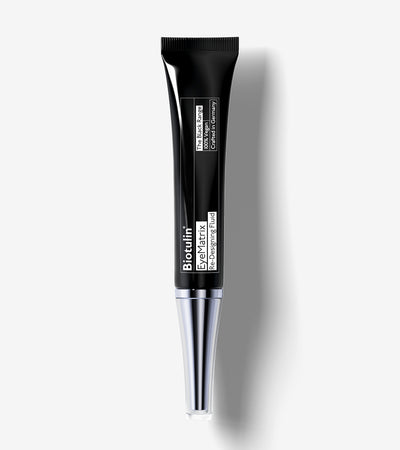Overview/Definition
Tridecane is a hydrocarbon compound primarily used in the cosmetic and skincare industry as an emollient. It is a lightweight, colorless liquid that is known for its ability to provide a smooth and non-greasy feel to skincare and makeup products. Tridecane is often derived from renewable sources, making it an attractive alternative to some traditional petroleum-based ingredients. Its molecular structure allows it to spread easily on the skin, enhancing the application experience of various cosmetic formulations.
In the realm of skincare, tridecane is valued for its ability to improve the texture and spreadability of products without leaving a heavy or oily residue. This makes it particularly useful in formulations aimed at providing a silky, lightweight finish. Additionally, tridecane can act as a solvent, helping to dissolve other ingredients and ensuring an even distribution of active components within a product.
Function in Skincare
Tridecane serves primarily as an emollient in skincare products. Emollients are crucial for maintaining the skin's moisture barrier and ensuring that the skin remains soft and supple. Tridecane's lightweight nature makes it ideal for products designed for daily use, as it does not clog pores or contribute to a greasy feeling. It helps to smooth the skin's surface, providing a velvety texture that enhances the overall sensory experience of using skincare products.
- Improves Spreadability: Tridecane enhances the ease with which products can be applied to the skin, ensuring a smooth and even distribution.
- Non-Greasy Feel: Unlike some heavier emollients, tridecane provides moisture without leaving an oily residue, making it suitable for use in lightweight formulations.
- Enhances Product Texture: It contributes to the silky texture of skincare products, improving user experience during application.
Skin Type Suitability
Tridecane is suitable for a wide range of skin types due to its lightweight and non-comedogenic properties. It is particularly beneficial for:
- Oily Skin: Its non-greasy nature makes it an excellent choice for individuals with oily skin who need hydration without added shine.
- Combination Skin: Tridecane can help balance the varying needs of combination skin by providing moisture where needed without overloading the skin.
- Sensitive Skin: While generally well-tolerated, those with sensitive skin should always patch-test new products containing tridecane to ensure compatibility.
Benefits
Tridecane offers several benefits for the skin, including:
- Enhanced Moisture Retention: By forming a lightweight barrier on the skin's surface, tridecane helps to lock in moisture, keeping the skin hydrated throughout the day.
- Improved Product Application: Its smooth texture ensures that skincare products glide effortlessly onto the skin, enhancing the overall application process.
- Non-Comedogenic: Tridecane does not clog pores, making it suitable for acne-prone skin types.
Potential Side Effects or Risks
While tridecane is generally considered safe for use in skincare products, there are a few potential side effects and risks to be aware of:
- Skin Sensitivity: Some individuals may experience skin sensitivity or allergic reactions to tridecane, particularly with prolonged use. It is always recommended to perform a patch test before incorporating new products into your skincare routine.
- Environmental Impact: As with many synthetic ingredients, the environmental impact of tridecane should be considered. Opting for products that use sustainably sourced tridecane can help mitigate potential environmental concerns.
Usage in Skincare Products
Tridecane is commonly found in a variety of skincare and cosmetic products, including:
- Moisturizers: Its emollient properties make it a valuable addition to moisturizing creams and lotions.
- Serums: Tridecane can enhance the texture and application of serums, making them more pleasant to use.
- Makeup Products: It is often used in foundations, primers, and other makeup products to improve spreadability and finish.
How It’s Used
To incorporate tridecane into your skincare routine, consider the following best practices:
- Patch Test: Before using a new product containing tridecane, perform a patch test to check for any adverse reactions.
- Follow Product Instructions: Use products as directed by the manufacturer to achieve the best results.
- Complementary Ingredients: Tridecane works well with a variety of other skincare ingredients, including hyaluronic acid, vitamins, and antioxidants. Look for products that combine tridecane with these beneficial components for enhanced skincare benefits.
Scientific Studies/Research
While specific studies on tridecane are limited, research on similar emollients and hydrocarbons provides insight into its potential benefits and safety. For example, studies on the efficacy of lightweight emollients in skincare have demonstrated their ability to improve skin hydration and texture without causing irritation or comedogenicity. Further research is needed to fully understand the long-term effects and benefits of tridecane in skincare formulations.
Other Names/Synonyms
Tridecane may also be referred to by its chemical name or other synonyms, including:
- n-Tridecane
Sustainability/Environmental Impact
The sustainability of tridecane depends largely on its source. When derived from renewable feedstocks, tridecane can be a more environmentally friendly option compared to petroleum-based alternatives. Additionally, its biodegradability can vary, so it is important to consider the specific sourcing and manufacturing practices of the products you choose.
Fun Facts
- Tridecane is part of a family of hydrocarbons known for their versatility and wide range of applications in both the cosmetic and industrial sectors.
- Its lightweight and non-greasy properties make it a popular choice for formulations aimed at providing a luxurious sensory experience.


